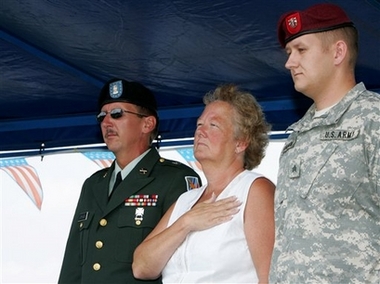Parents of slain soldiers visit Iraq
(AP)Updated: 2006-12-26 17:03
LYERLY, Ga. - After her son Justin was killed serving in Iraq, a grieving Jan Johnson resolved to see the place where he died and to better understand why it happened.
"I wanted to go see where my son died," she said. "You hear in the news how bad Iraq is, that it isn't worth saving. ... I wanted to go find out for myself."
Family members of US casualties of war have made pilgrimages in the past to Vietnam and other war zones where their sons and daughters died.
But the fighting in Iraq was far from over, so a similar journey seemed unlikely until a nonprofit organization called Move America Forward decided to organize a trip.
By the time plans had been made, Joe had returned from an eight-month tour in Iraq and was willing to return for his wife's sake.
The trip cost between $5,000 and $7,000 per person, but donations came pouring in from across the country, including checks from soldiers. The seven were told to keep their travel plans hidden from the Department of Defense and even their own children.
Robert Dixon, the organization's director, said that because the Kurdistan Regional Government was hosting the group, there was no reason to clue the Defense Department in on their travels. He told them to keep tightlipped because "we didn't want to endanger anybody by telling people."
The department did not respond to repeated requests for comment.
The Johnsons abided by Dixon's requirement, telling their two children and other family members they were going to Canada.
The group left in early November for Amman, Jordan, where they spent a day before arriving in Iraq. A few shell-shocked security guards staying at a hotel begged Joe Johnson to rethink their trip into a war zone.
But Jan was determined to press on: "We've gone this far," she said. "We're going to go all the way."
The next morning, a plane flew the families into Arbil, the capital of the
Kurdistan region in northern Iraq. It's one of the safest areas of the country,
where suicide bombers rarely strike and the insurgency has little support among
the Kurds, a minority long oppressed under Saddam Hussein's rule.
| 1 | 2 |  |
|
||
|
||
|
|

